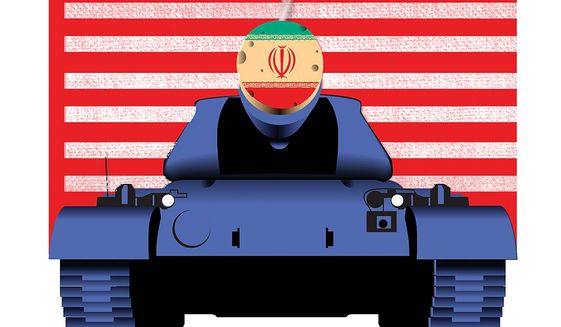Similarly, President Obama breezily assures us, “The same options that are available to me today will be available to any U.S. president in the future.”
Were it only true.
The major options available to the president in the face of an Iranian nuclear threat are covert (sabotage, cyberwarfare) and military (precision airstrikes with bunker-busting bombs).
Mr. Obama has these at his disposal today. But his successor is unlikely to have them in 10 years.
Why? For seven reasons.
First, amazingly, the Vienna nuclear agreement requires the Europeans to assist Iran with training and technology in protecting its nuclear sites and program against sabotage. It is no coincidence that, in 2013, when Mr. Obama deviated from his earlier insistence on Tehran ceasing uranium enrichment in favor of negotiating a deal permitting continued enrichment, the CIA and NSA “drastically curtailed its cooperation with Israel.” This cooperation, aimed at disrupting the Iranian nuclear project, had enjoyed “significant successes over the past decade,” according to veteran military and intelligence analyst Ronen Bergman.
The nuclear deal thus renders future sabotage and cyberwarfare against Iran — such as the Stuxnet virus, which wrecked a fifth of Iran’s centrifuges in 2010 — more difficult; perhaps, in time, even impossible.
Second, Mr. Obama has himself admitted the possibility that, at the deal’s expiration, “the breakout times would have shrunk almost down to zero.” (So much for his current claim that “Iran [would be] further away from a weapon” in 10-15 years). This means there might not be time to act even militarily, since Iran may well already have one or more nuclear weapons.
Third, Tehran will have had the time to reinforce existing underground facilities and build new, deeper ones that might be impervious to airstrikes. This means that the 30,000-pound Massive Ordnance Penetrator, the bunker-busting bombs which can penetrate Iran’s underground nuclear facility at Fordow, might not be enough to do the job.
Fourth, Russia is already set to sell Iran its upgraded S-300 anti-aircraft system. The S-300 system is believed to have the capacity to knock out the latest American aircraft. The best weapon in the world is useless if the planes carrying it can’t get through.
Fifth, the nuclear deal permits Tehran continued research, development and production of its own missiles, including Inter-Continental Ballistic Missiles (ICBMs), the means of delivery for nuclear weapons. This particularly should have been rejected by the White House: Iran already has the missiles to strike Israel, but ICBMs will enable Iran to hit the United States, not now, but certainly in 10 years.
Sixth, the nuclear agreement will award Iran $150 billion in unfrozen assets and tens of billions annually in sanctions relief, enabling it to develop faster its military capabilities and lavishly fund its terror proxies around the globe. This means tens of thousands of new missiles for Hezbollah in Lebanon, Hamas in Gaza and for the Shia Houthis taking over Yemen and threatening commerce through the Suez Canal. The existing Iranian potential to retaliate against and harm American allies in the Middle East will be vastly magnified in 10 years, making any U.S. strike on Iran more complicated.
Seventh, this agreement terminates international sanctions and, if the Congress approves it or fails to override a presidential veto, U.S. sanctions will also be ended. Failing internationally-recognized Iranian violations, the United States will not be able to reimpose sanctions in the face of the now-UN Security Council-approved nuclear deal that lifts them. And even if sanctions are reimposed, it will take years for these to have any real impact on Iran.
In other words, today, America has the ordnance, the capability and the time to destroy Iranian nuclear facilities without fear of anti-ballistic missiles or nuclear retaliation. It is likely to lack all of these advantages in 10 years.
So much for President Obama’s “same options” being “available to any U.S. president in the future.” So much for Secretary Kerry’s claim that U.S. options remain the same for 10 years.
Mr. Obama’s and Mr. Kerry’s flat-earth, rosy assertions about America’s future capacity to deal with an Iran headed for nuclear weapons warrant the Congress to oppose this deal.
A future president could well use the moral, political and legal authority of Congressional rejection — as well as the consequent impediments this will create for other countries lifting their sanctions — to have a stronger hand in dealing with the nightmare President Obama is bequeathing us.


No comments:
Post a Comment